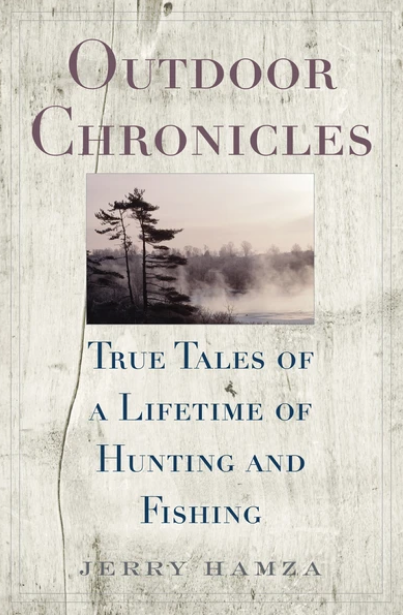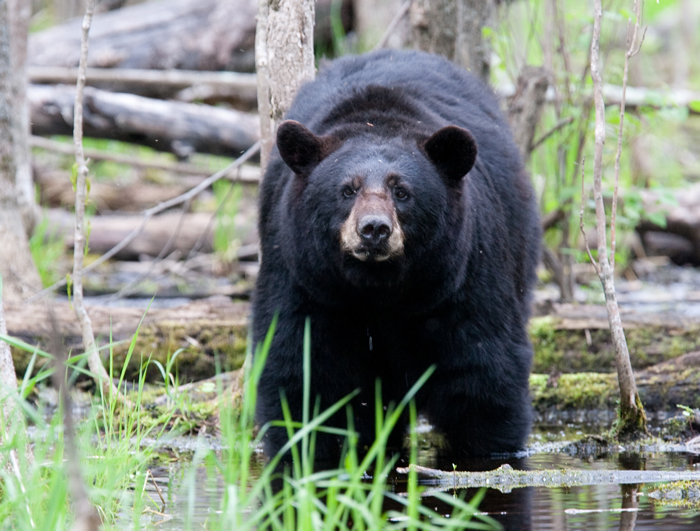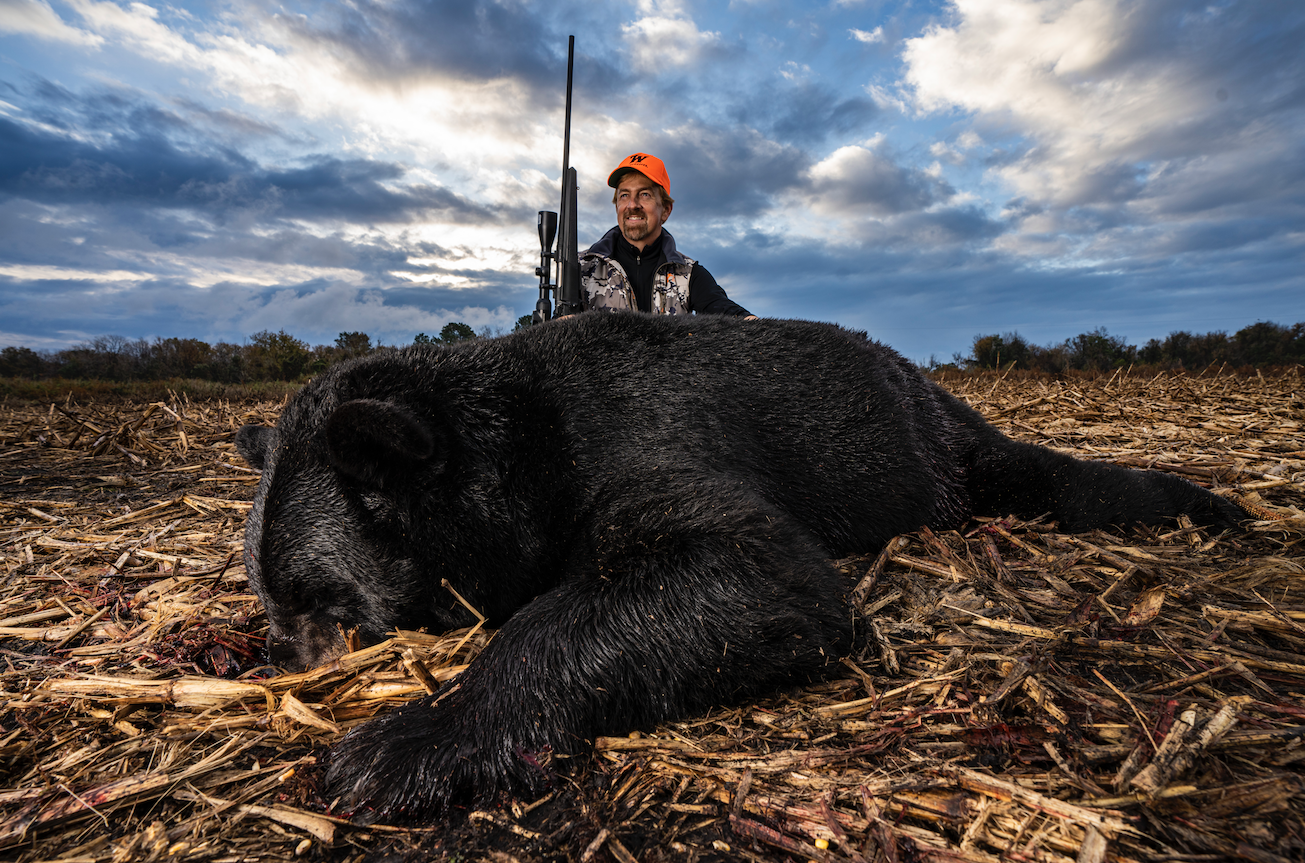It can be hard to pass up a perfect shot, but the hunting ethics at our core remind us that following the law must always come first.
My boots sank into the moist forest floor as I walked to the stand just before daylight. My dad and I hunt together in a 12-foot-high double-buddy treestand that overlooks a swamp bottom on the property we hunt in Culpeper County, Virginia. A small creek runs just in front of the stand, making this the ideal landscape for any game animal. “The Swamp Stand,” as we call it, is particularly attractive to black bears. Although we hadn’t seen one, we did spot bear sign on trail camera footage throughout the summer and just before the season began.
Once we settled into the stand, my dad whispered to me something that changed the whole morning…and something he will, hopefully, never say again.
“Now if we see a bear, we can’t shoot it because I haven’t purchased our bear tags yet.”
My heart sank. It was the first time I had been able to come home and hunt that season because of my college obligations, and I desperately wanted to harvest a bear. All I could do was shake my head.
Sitting in the woods, even under those circumstances, always seems to be a type of therapy, an escape. The high-pitched call of a hawk and water dripping from twigs onto the leaf litter below reminded me that I was in God’s home. I was gazing to the right and left every few minutes to see if I could catch movement, but it was difficult because of the leaves that hadn’t fallen from the trees yet.
I checked the time: 8:26, my favorite to hunt. I’ve seen more wildlife moving in the late morning than at sunrise or sunset—what my father calls “magic hour.” The time reinforced my faith in seeing something, so I sat up and began scanning the woods again.
Five minutes later I caught a glimpse of movement a few hundred yards to my right. I fixed my eyes on the spot, hoping to see it again.
I did.
A black object sneaked through a small opening in the forest. My eyes wide and my heart racing, I could hardly get the words out.
“Dad, there’s a bear, two o’clock.”
He didn’t believe me because he couldn’t see the bear at first, but then it stood against a tree and he caught sight of it. For a moment nothing seemed to exist in the forest except me, the bear and whatever it was reaching for on that tree. Tunnel vision kicked in, and my thoughts were scrambled from the excitement. This was the first time I had ever seen a bear in the wild.
“If he comes this way, should I shoot him?” I asked.
Dad didn’t say anything, just sat motionless, staring at the bear that was getting ever closer.
“You could shoot him, and then we could get online and purchase your bear tag,” he finally said.
The bear continued his approach. He’d occasionally pause and investigate forage for his mid-morning meal, but we knew that his ultimate destination was the forest opening in the swamp just below us. I hesitated to raise my bow, unsure if shooting the bear prior to purchasing a tag would be ethical. I only raised it enough to rest it on the treestand.
The bear made his way to the tree line to my right in what seemed like ten seconds. He looked to weigh nearly 350 pounds and was definitely a trophy, but all I could think about was how an animal that size could move so quietly, so diligently through such a thick forest.
Just above the creek, exactly 15 yards in front of us, he froze in the wide open, his left front leg extended forward—the perfect position for a clean shot.
But as perfect as it was, was it right?
I had just decided not to shoot when my dad said, “No. We didn’t purchase our bear tags yet, and that’s all there is to it. Don’t shoot him.” Just then the bear darted back the way he’d come, having finally caught wind of us.
Disappointment washed over me. I began to feel the tension in my muscles from the adrenaline as the bear vanished into the thick pines. I was heartbroken, knowing that the perfect opportunity to harvest my first black bear with a bow slipped right through my fingers in a matter of minutes. A 350-pound black bear got away from the broadhead resting in my whisker biscuit. It had been a hunter’s dream scenario. The devastation was overwhelming.
“I’m sorry, sweetheart,” my dad said. “If we had our bear tags you could have taken a shot at him.”
My emotions were jumbled. I couldn’t decide if I was more heartbroken, excited, regretful or upset at my dad for not having purchased our tags when there was a great chance we’d see a bear that morning, and then having that chance actually happen. I think it was ultimately a combination of all of those feelings, and I was speechless.
Despite my sickening emotions, I knew that every hunter has gone or will go through such an experience. Still, I was feeling the pain of the sacrifice I had made to become a better hunter. Then I started to come back to reality and realized that my dad hadn’t said anything after apologizing. I knew that he felt guilty, as if everything was his fault. If he had purchased our bear tags along with our other tags, I would have been able to draw back my arrow and shoot at the bear. But I had a more valuable experience that morning, and I realized it after wallowing in my sorrows for a few moments.
I began being optimistic. I created a list of the positive outcomes: I saw a bear fewer than 20 yards away; I learned an important lesson afield that has shaped me into a better hunter; and I got to witness God’s country again. I knew that God was going to give me a second chance at harvesting a bear someday.
On the other hand, if I had shot the bear and then purchased my bear tag, the guilt would have overwhelmed me and I would not have enjoyed my harvest the way it should have been. It was certainly a tease to watch the bear walk right to me and then right away, but I would rather be proud of my harvest without the weight of a guilty conscience on my shoulders.
I looked at my dad and said, “It’s all right. We’ll get him next time. But first thing’s first: Let’s get out of this stand and go purchase our bear tags.”
Cover image: R.P. Birdman/iStock
 This book is a collection of outdoor stories wrapped in the human condition. They were written with an eye toward honesty and cynicism. They will make you laugh out loud, and you will want to carry them with you wherever you go. If this book goes missing, it’s a sure thing that, when you do find it, it will be in the possession of a member of your household, regardless of their interest in casting a fly. The stories cover the gamut from a fishing trip to northern Canada to a little stream that was actually better than remembered, to how the baby boomers almost trampled a sport to death, to a solitary trek along railroad tracks during a cold, dark and dreary February and many more. Shop Now
This book is a collection of outdoor stories wrapped in the human condition. They were written with an eye toward honesty and cynicism. They will make you laugh out loud, and you will want to carry them with you wherever you go. If this book goes missing, it’s a sure thing that, when you do find it, it will be in the possession of a member of your household, regardless of their interest in casting a fly. The stories cover the gamut from a fishing trip to northern Canada to a little stream that was actually better than remembered, to how the baby boomers almost trampled a sport to death, to a solitary trek along railroad tracks during a cold, dark and dreary February and many more. Shop Now




